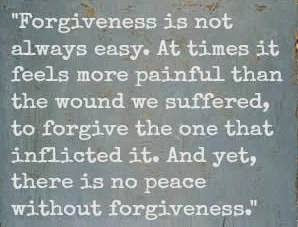When The Soul Is Troubled
S. Michael Wilcox
When Jesus was burdened with heaviness, sorrow, or care he turned outward to give solace to others. It is one of the greatest elements of the last hours of his life. Immediately preceding the last hours of his life he said something interesting. Notice his thoughts as he approached the defining moments of his life: “Now is my soul troubled.” Keep that word in mind, troubled. He is moving into his last hours, and his soul is troubled. “And what shall I say? Father, save me from this hour, but for this cause came I unto this hour” John 12:27. That verse is a window into his soul. He is troubled as he faces those last painful moments of his life.
….sitting at the Last Supper. He looks around at the faces of his disciples. What does he know as he looks at these men? He knows Judas has already betrayed him. He knows Peter will deny him three times before the morning light. He knows that all of the other Apostles will leave him. He knows that within hours, the whole weight of the suffering and sins of the world will descend upon him in Gethsemane. He knows he will be scourged and crucified. If ever there was a man in the history of the world who needed someone to comfort him because his heart was troubled, it would have been Jesus at that time.
…. as the heaviness of the hour begins to settle upon him. Yet as we read the account of the Last Supper and the last moments of Christ’s live, who comforts whom? Remember our key word is troubled. Some of the beautiful statements from the Last Supper are the following, but we have to read them knowing that Jesus’ own soul was troubled. “Let not your heart be troubled,” he told them. “ye believe in God, believe also in me, In my Father’s house are many mansions, if it were not so, I would have told you. I go to prepare a place for you. And if I go and prepare a place for you, I will come again, and receive you unto myself, that where I am, there ye may be also.”
These words are so familiar that most could quote them from memory. They are some of the most beautiful statements Christ ever made, but he made them when he himself was heavy and troubled. Later Jesus said, “Peace I leave with you, my peace I give unto you, not as the world giveth, give I unto you. Let not your heart be troubled, neither let it be afraid.”
Moments later he says, “These things I have spoken unto you, that in me ye might have peace. In the world ye shall have tribulation, but be of good cheer, I have overcome the world.”
They depart for Gethsemane where he prays prior to his solitary moments with the Father. He is now minutes from the full atoning weight. It is already starting to descend upon him. We know this because he tells his disciples as he arrives at the garden of Gethsemane that he is heavy and amazed. Christ himself is astonished at the agony of suffering that is beginning to settle upon him as his understanding of human misery becomes intense. He now prays. Who does he pray for?
I have manifested thy name unto the men which thou gavest me out of the world:…I pray for them: I pray not for the world, but for them which thou hast given me; for they are thine….And now I am no more in the world, but these are in the world, and I come to thee. Holy Father, keep through thine own name those whom thou hast given me, that they may be one, as we are…I pray not that thou shouldest take them out of the world, but that thou shouldest keep them from the evil…..And for their sakes I sanctify myself…. Father, I will that they also, whom thou hast given me, be with me where I am…. I have declared unto them thy name, and will declare it: that the love wherewith thou hast loved me may be in them, and I in them. John 17:6, 9, 11, 15, 19, 24, 26
That’s a magnificently beautiful prayer, but it’s not for himself. He’s not saying, “Father, help me, strengthen me, I’m going to go through this awful agony.” He is praying for others. He looked outward throughout that prayer.
On the very cross itself, who was he concerned about? … assigning his disciple John to care for his mother, “Woman, behold thy son!... Behold thy mother!” “To day shalt thou be with me in paradise”
Was directed to those crucified with him. “Father, forgive them, for they know not what they do” showed his concern even for his very persecutors and tormentors. He forgave them in the very act. It is one thing to forgive when the sin is over and the initial pain is gone, it is another to forgive at the very moment you are sinned against. He was always turned outward. Always.




























